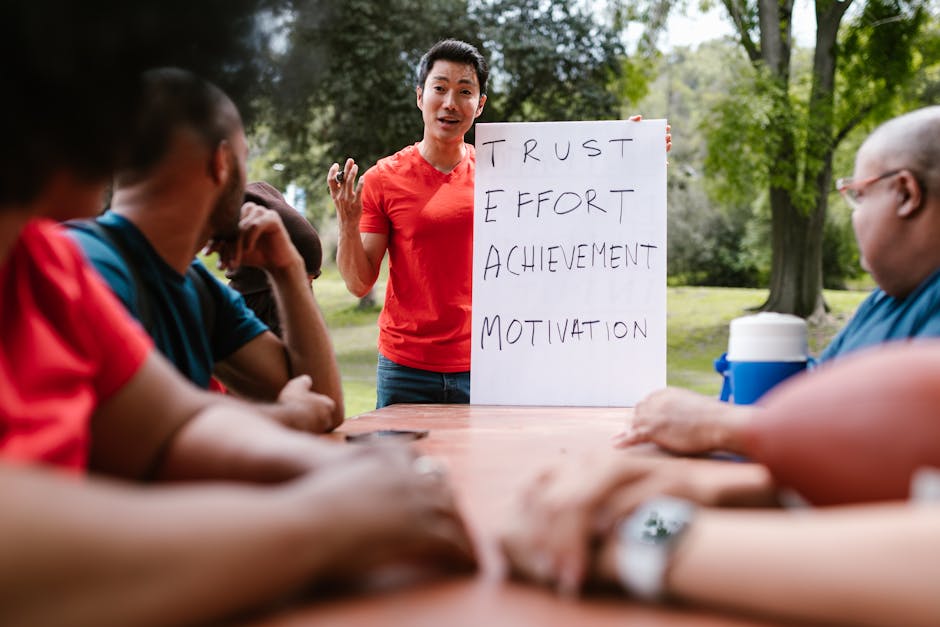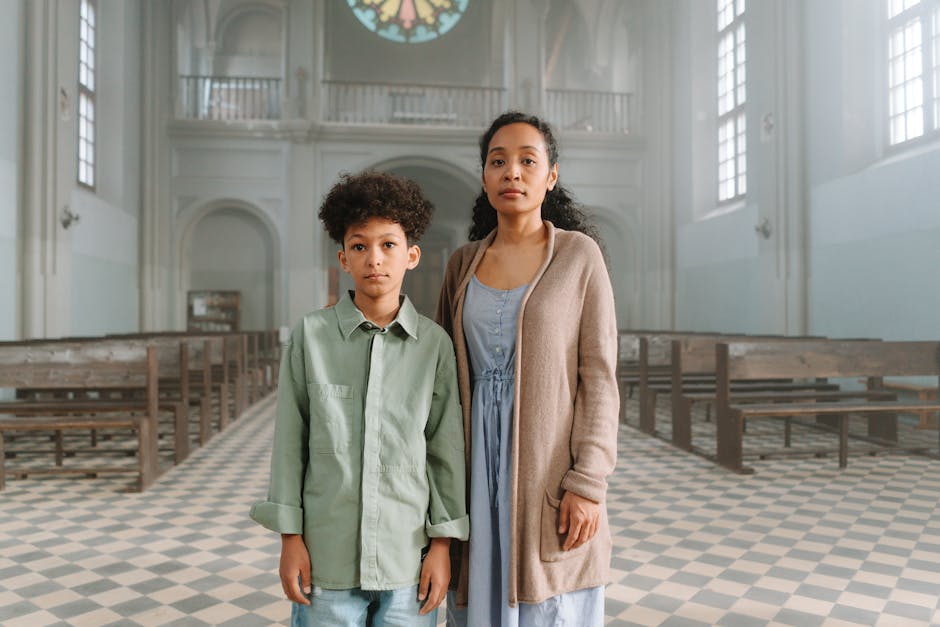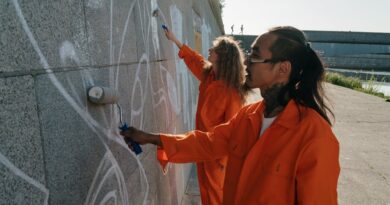Exploring the Role of Trust in Communities
Trust is a fundamental pillar of any community. It is the glue that holds relationships together, fosters cooperation, and enables individuals to thrive collectively. In a world where social connections are increasingly digital, the concept of trust in communities takes on new complexities and dimensions. From the bonds formed in small neighborhoods to the global networks that shape our societies, trust plays a crucial role in shaping our interactions and shaping our world.
The Evolution of Trust

Trust has been a key component of human societies since the dawn of civilization. In ancient times, trust was built through face-to-face interactions, shared experiences, and mutual obligations. As communities grew larger and more complex, institutions such as religion, government, and commerce emerged to facilitate trust among strangers. These institutions provided a framework of rules, norms, and enforcement mechanisms that allowed people to interact with a certain level of confidence.
However, in today’s interconnected world, trust faces new challenges. The rise of social media, online platforms, and digital communication has transformed the way we build and maintain trust. With the click of a button, we can connect with people from around the globe, forming communities based on shared interests, beliefs, or identities. While this digital landscape offers new opportunities for connection, it also presents new risks and uncertainties.
How do we know who to trust online? What happens when trust is betrayed in a virtual community? How can we build trust across cultural, linguistic, and geographical boundaries? These are just some of the questions that arise when exploring the role of trust in modern communities.
The Foundations of Trust

Trust is built on a foundation of reliability, consistency, and integrity. When we trust someone, we believe that they will act in our best interests, keep their promises, and behave ethically. In a community context, trust is often established through repeated interactions, shared values, and a sense of reciprocity.
Research has shown that trust is essential for the functioning of social groups. In his book “Trust: Human Nature and the Reconstitution of Social Order,” sociologist Francis Fukuyama argues that trust is a key factor in the success of societies. Without trust, cooperation breaks down, institutions fail, and social order crumbles.
Trust also plays a critical role in economic relationships. In a study published in the Journal of Economic Perspectives, economists Alberto Alesina and Paola Giuliano found that trust is positively correlated with economic growth. Countries with higher levels of trust tend to have more efficient markets, stronger institutions, and greater overall prosperity.
Building Trust in Diverse Communities

In today’s multicultural societies, building trust across diverse communities is a pressing challenge. As populations become more diverse in terms of race, ethnicity, religion, and culture, forging connections and fostering understanding becomes increasingly important.
One approach to building trust in diverse communities is through intergroup contact. Research has shown that positive interactions between members of different groups can reduce prejudice, increase empathy, and build trust. By bringing people together in shared activities, such as community events, volunteer projects, or cultural celebrations, bridges can be built between different communities.
Another key factor in building trust in diverse communities is communication. Open, honest, and respectful dialogue can help break down stereotypes, dispel misunderstandings, and promote mutual understanding. By actively listening to the perspectives of others and sharing our own experiences, we can build trust and create a more inclusive community.
The Role of Trust in Online Communities

With the rise of social media and online platforms, the nature of community and trust has undergone a profound transformation. Online communities allow people to connect with others who share their interests, passions, and beliefs, regardless of physical distance. However, the anonymity and distance of the online world can also create challenges for building and maintaining trust.
Trust in online communities is often built through reputation systems, user reviews, and social proof. Platforms such as Amazon, Airbnb, and Uber rely on trust metrics to help users assess the reliability and credibility of others. By providing feedback, ratings, and reviews, users can signal their trustworthiness and build a positive reputation within the community.
However, trust in online communities can also be fragile. The prevalence of fake news, misinformation, and online scams has eroded trust in digital spaces. In a study published in the Journal of Computer-Mediated Communication, researchers found that trust in online information is influenced by factors such as source credibility, message content, and social influence.
Challenges to Trust in Communities
While trust is essential for the functioning of communities, it is not always easy to establish or maintain. Trust can be fragile and easily broken, especially in the face of conflict, deception, or betrayal. In his book “The Thin Blue Line,” psychologist Philip Zimbardo explores the dark side of trust, highlighting how blind obedience, groupthink, and authority can undermine trust within communities.
One of the key challenges to trust in communities is the erosion of social capital. Social capital refers to the networks, norms, and social trust that enable cooperation and coordination within a community. When social capital is low, communities are more likely to experience conflict, isolation, and dysfunction.
Another challenge to trust in communities is the rise of polarization and echo chambers. In a study published in the Proceedings of the National Academy of Sciences, researchers found that social media algorithms can amplify echo chambers, reinforcing existing beliefs and isolating people from diverse perspectives. This can erode trust in institutions, media, and other sources of information.
Trust-Building Strategies for Communities
Despite the challenges, there are strategies that communities can employ to build and maintain trust. One approach is to foster transparency and accountability. By being open and honest about decision-making processes, sharing information openly, and holding leaders accountable for their actions, communities can build trust and credibility.
Another key strategy for building trust in communities is to promote diversity and inclusion. Research has shown that diverse communities are more resilient, innovative, and adaptive. By embracing diversity, valuing different perspectives, and creating inclusive spaces, communities can build trust and create a sense of belonging for all members.
Community engagement is also crucial for building trust. By involving residents in decision-making, soliciting feedback, and empowering community members to take ownership of their neighborhoods, trust can be strengthened and relationships can be deepened. Community events, town hall meetings, and participatory budgeting are just some of the ways to engage residents and build trust.
The Future of Trust in Communities
As we look to the future, the role of trust in communities will continue to evolve. With advances in technology, communication, and globalization, new opportunities and challenges will arise for building trust across diverse communities. The COVID-19 pandemic, for example, has highlighted the importance of trust in public health messaging, community support, and government responses.
Emerging technologies such as blockchain, artificial intelligence, and virtual reality also hold promise for enhancing trust in communities. Blockchain technology, for instance, offers a secure and transparent way to record transactions, verify identities, and establish trust in decentralized networks. Artificial intelligence can help analyze vast amounts of data, detect patterns of behavior, and identify potential trust violations.
Ultimately, the future of trust in communities will depend on our ability to adapt, innovate, and collaborate. By building strong relationships, fostering open communication, and embracing diversity, communities can create a culture of trust that enables them to thrive in an increasingly interconnected world.
Common Misconceptions
One common misconception about trust in communities is that it is solely based on personal relationships. While personal relationships are important for building trust, trust in communities also depends on institutional structures, cultural norms, and social capital. Communities that have strong institutions, clear rules, and a sense of shared identity are more likely to have high levels of trust.
Conclusion
Trust is the foundation of any community. It is what allows us to work together, build relationships, and create a sense of belonging. As we navigate the complexities of modern society, the role of trust in communities becomes increasingly important. By fostering transparency, promoting diversity, and engaging residents, communities can build trust and create a more connected, resilient, and inclusive world.
As we reflect on the role of trust in communities, let us remember that trust is not just a concept it is a living, breathing force that shapes our interactions, our decisions, and our future. By investing in trust, we invest in the strength and vitality of our communities.




